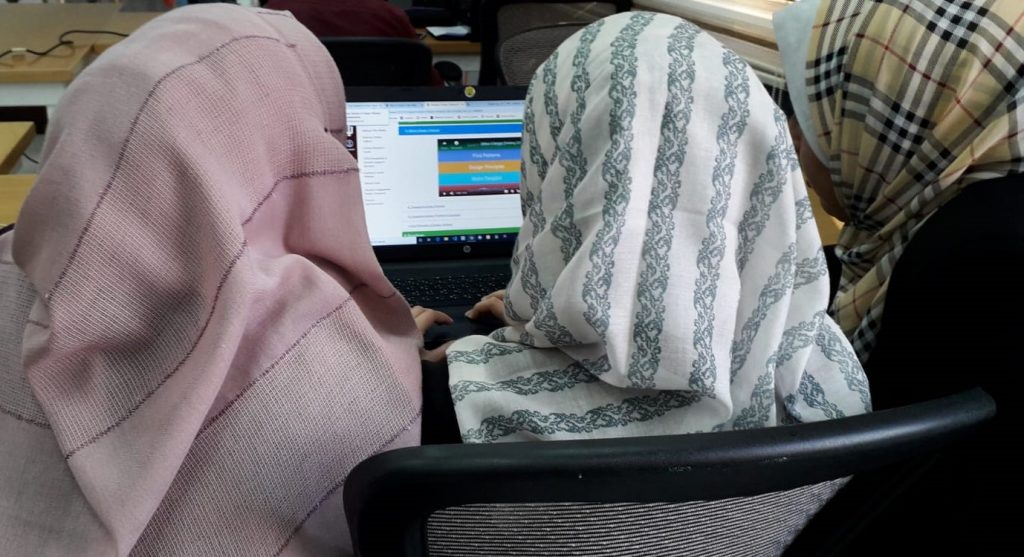-
What We Do
- WHERE WE WORK
-
About Us
 Welcome Message from Carol Jenkins
Welcome Message from Carol JenkinsFor more than 90 years, World Learning has equipped individuals and institutions to address the world’s most pressing problems. We believe that, working together with our partners, we can change this world for the better.
On my travels, I’ve had the opportunity to meet with many of those who have joined us in this mission. In Baghdad, we’ve trained more than 2,300 Iraqi youth who are already giving back at home. In London, our partners in the TAAP Initiative strongly believe that we are all responsible to practice inclusion. And in Vermont, our Experiment in International Living and School for International Training participants prove every day that they have the tools and the determination to change the world.
Please join us in our pursuit of a more peaceful and just world.
- Get Involved
Media Center > Story
Develop Skills, Relationships, and Intercultural Understanding with Virtual Exchange
July 21, 2020

Enabled by modern technology’s incredible capacity to connect people, virtual exchange engages participants from across the world to learn together and develop intercultural understanding. The NextGen Coders Network (NGCN) is one such virtual exchange program, bringing students and young professionals from the Middle East and North Africa (MENA) and the US together online to develop their programming abilities. Over a ten-week virtual “Hackathon,” participants complete independent learning modules while simultaneously working with their groupmates to produce a final website or application to tackle global challenges.
Virtual exchanges like NGCN can play a vital role in enabling participants to develop skills critical to succeeding in the modern workforce, such as project management, group collaboration, and cross-cultural communication. In NGCN’s first year, more than 100 participants successfully graduated from the program. These students and young professionals completed projects on a wide array of topics, including refugee camps, addiction, sports diplomacy, mental health, travel, web design, and public health.
NGCN emphasizes collaborating to tackle real world challenges, encouraging participants to embrace their diverse perspectives and skill sets. Participants took that to heart when, in the middle of the second “Hackathon,” the COVID-19 pandemic began spreading globally, prompting several teams to discuss what they could do to help, such as creating informative applications designed to help the public stay safe.
In her April address to Spring 2020 NGCN alumni, Andie Shafer, senior program associate at the Stevens Initiative, told the new alumni, “Despite the fact that we are experiencing a really unprecedented time and many of us are at home, you still have worked together across oceans to collaborate and innovate and, hopefully, make some new friends. That is the power of virtual exchange programs.”
Not only is virtual exchange a critical resource to continue international exchange during COVID-19, it will remain an essential force for promoting intercultural understanding long after the pandemic. Virtual exchange is an excellent option if a student wants to study abroad but is financially unable, has obligations keeping them near home, or even if they simply want to practice for an in-person exchange. However, it is not a lesser substitute for a study abroad; rather, it is an equal counterpart, offering the valuable experience of broadening perspectives, developing skills, and creating meaningful human connections.
Through NGCN, participants were able to experience firsthand the benefits of virtual exchange. One participant stated, “The best thing about working in a team is that everyone sees the problem from a different perspective, which helps a lot when defining and solving a problem. Design thinking and project management helped me when working with my team members as I learned how to develop new ideas based on what we discussed.” Others reported that their teams challenged their creativity, improved their self-confidence, and gave them the opportunity to gain insight from their peers.
NGCN is funded by the Stevens Initiative, which is sponsored by the U.S. Department of State, with funding from the U.S. government, and administered by the Aspen Institute.





